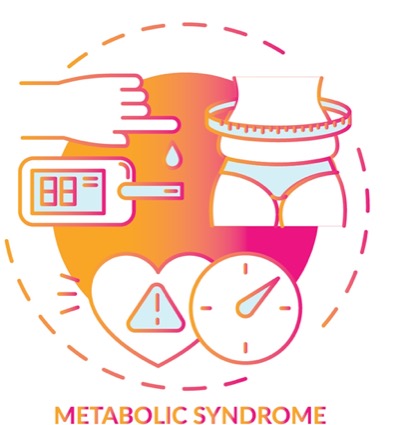Older people with metabolic syndrome appear to be at a significantly greater risk for developing internal hemorrhoids and diverticular complaints, researchers have found.
“While previous studies have reported an association between metabolic syndrome or its components with colonic diverticulosis, our study is one of the first to assess the relationship between metabolic syndrome and internal hemorrhoids,” said Farah Harmouch, MD, an internal medicine resident at St. Luke’s University Health Network, in Bethlehem, Pa., who helped conduct the study. “When metabolic syndrome was present, it was significantly associated with both colonic diverticulosis and internal hemorrhoids.”
Metabolic syndrome describes a group of conditions—high blood pressure, high blood glucose, abdominal obesity and abnormal cholesterol levels—associated with an increased risk for heart disease, stroke and type 2 diabetes. Up to one-third of U.S. adults have metabolic syndrome, and its prevalence is increasing across all sociodemographic groups.
To evaluate for associations between metabolic syndrome and both colonic diverticulosis and internal hemorrhoids in older people—the population most commonly affected by diverticular disease—Dr. Harmouch and her colleagues reviewed the medical records of 590 men and women at St. Luke’s, aged 75 years and older, who underwent colonoscopy between 2012 and 2019 (median age, 79 years; 60.6% women; 91% white). Overall, 33.1% of patients had metabolic syndrome, 68% had colonic diverticulosis and 30% had internal hemorrhoids.
Metabolic syndrome was significantly associated with colonic diverticulosis (odds ratio [OR], 1.4) and internal hemorrhoids (OR, 1.5). Dr. Harmouch noted that the relationship between diverticulosis and obesity approached, but did not reach, significance.
Subgroup analysis revealed slight differences in risk factors between patients who are younger and older than 85 years of age.
“Internal hemorrhoids were slightly more common in the older age group while metabolic syndrome, colonic diverticulosis and constipation were slightly more common in the younger age group,” Dr. Harmouch said. “All components of metabolic syndrome were more common in the younger age group with the exception of a low HDL [high-density lipoprotein].”
Of note, increasing age and constipation were not significantly associated with either colonic diverticulosis or internal hemorrhoids, which supports emerging data that other factors may contribute to the development of these conditions, Dr. Harmouch and her colleagues reported.
—Adam Leitenberger
Dr. Harmouch reported no relevant financial disclosures. The study was presented at the 2020 virtual meeting of the American College of Gastroenterology.

